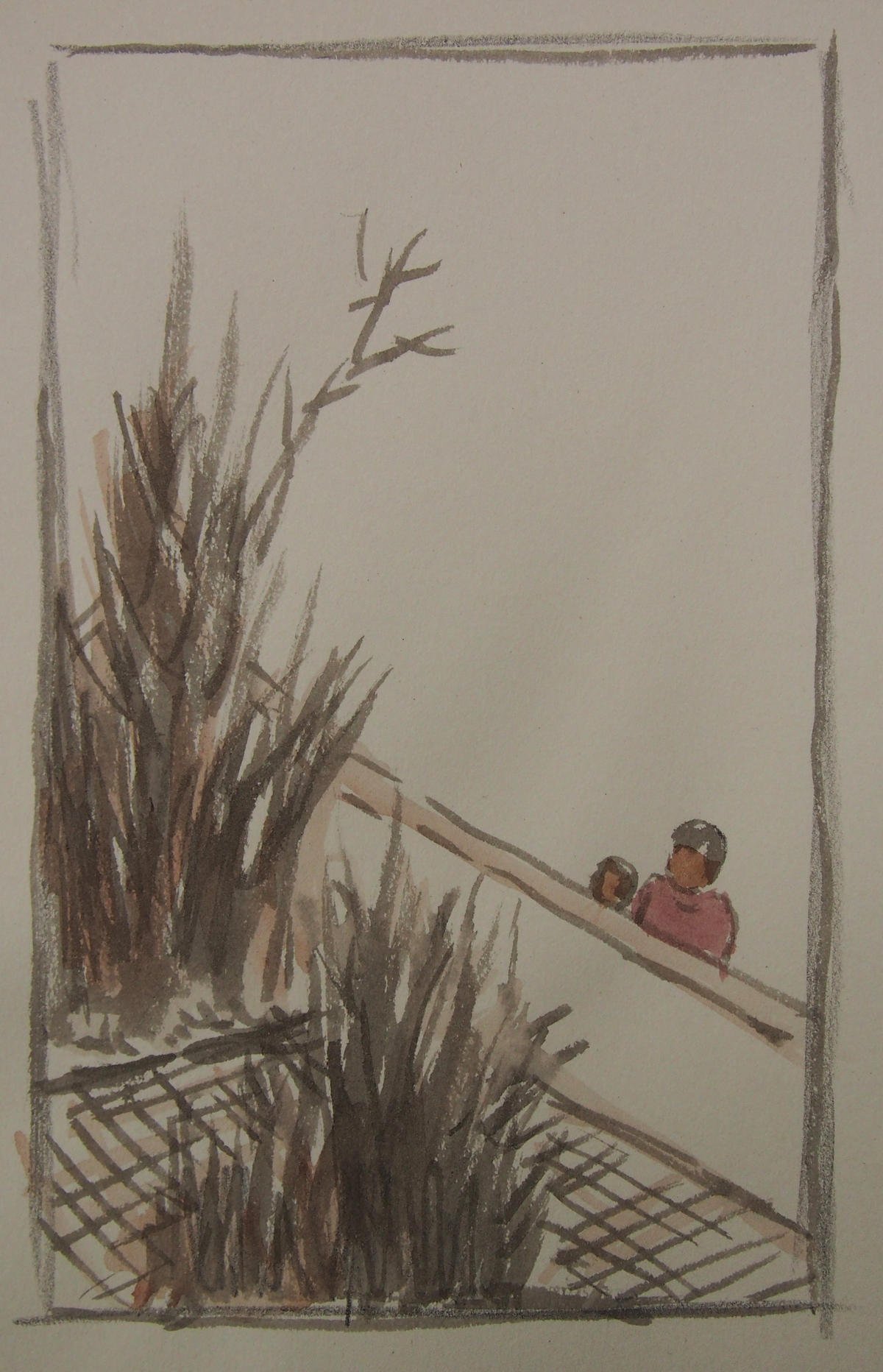Painting by Heart
I love art, regardless of the subjects and forms. I love those moving artistic works bringing resonance to me. I major in fine arts, but I’m not undertaking the artistic creation, therefore, I pay more attention to the thought and connotation of the artistic works in combination with my experiences in art.
The most moving point of Cui Tong’s paintings to me is his inaction. Nowadays, the postmodernists are rampant, conceptual drawing and artistic devices are propagating their belief on a large scale, most artists are attempting in incarnating “meanings” into their works, so art becomes an anxious kid, with the intention of unceasing recounts, because as for modern painting, the meanings are more important than the joy brought by artistic creation itself. Art is rather than inspirations from artists, it’s also turns into a communication tool, which is compulsorily ironed with the print of “interaction” in the information era, because in a blundering era with confusing information, art is far from a tool for the ancient men of letters to live in seclusion and to console themselves. For art turns into all sorts due to eagerness in recount, even resort to extreme measures. I’m always holding an understanding attitude toward this, and I’m preparing to communicate with artistic works all the time, and I’m “shocked” by the artistic works. However, I see very clean pictures when I check up the e-mails sent by Cui Tong, My heart gradually precipitate in the process of looking at these works, and enter into a long-desired tranquility.
One series of Cui Tong’s works called as “Boring”, in fact I think many of his works could be classified into this series, for these works bring the same feeling to me; in other words, man of his works express an empty atmosphere. Why could the works named “Boring” make the viewer feel as calm as water? It’s very easy to get the literal meaning of boring: not interesting, the feeling of bored empty. However, empty cannot be equal to tranquility, for empty could also be embodied in a perplexed and lost spiritual state, and it’s very hard for those really bored people to calm down as water. The difference between the meaning of this name and my feeling arouses my interests in it. For this purpose, I have specially consulted the meanings of “Non-Boring”:
“non-boring”, is tinnitus. “Parallel vessels are competing each other, while the whistling of them causes tinnitus” is recorded in “Shuowen Jiezi”, means buzzing sound, and losing one’s balance. Another meaning of “non-boring” is reliance, such as “overcome with boredom”. “The common people lose their reliance” is recorded in “Xunzi Zidao”, means the people are non-reliant. “The masses have no means to live” comes out from “Strategies of the Warring States: Qin”, that is, “have no means to live”.
The “non-boring” related to Cui Tong’s paintings roughly have two meanings: tinnitus and reliance. The “boring” in the author’s works could be explained as “tranquility at ear and non-reliance at heart”. While non-reliance could be understood as free from worry, in other words, it means the freedom of soul. Tranquility and freedom, these two words could finally interpret why could his paintings make me feel as calm as water. Without complicated scenes, without elegant brushstrokes, without dazzling sceneries, without colors, without expressions in figures, but the ordinary sceneries and figures, and these works seem to give up everything while the others are struggling in excavation. I’m even jealous while looking at these paintings, I’m jealous why could the artist have such a leisurely and comfortable life! We are hustling about trying to make some profits everyday, are anxious to achieve quick success and instant benefits, this artist is lying beside the wall, lying on the bed and standing beside water with his son in such a manner while I myself is racking my brain in seeking meanings everyday, while the surrounding sceneries could not distract his mind and his paintings, how could I not be jealous? These works remind me of one sentence, “the real elite has his own romance”, the paintings from the author have also implied the realm of the ancient Chinese as “the small hermit is found in countryside, while the big hermit is found in town”.
I also see the shadow of one person in his works, that is, Feng Zikai. I love many of Mr. Feng Zikai’s works describing the life of common people, such creations are not “lofty and noble” as the current fashion, however, they make you feel art is very close to us, rather than “alpine look-up”, but are happy look-back on roads of our life, and a smile in experiencing each detail of life. You could find such feelings in Cui Tong’s works, quietly enjoy the fun of life in a seemingly boring state, without any displays and restless. The various roads from various people are required in artistic creation to shape a tide of art, none of the roads are completely correct, and none of them are unique, and the richness of art lies in different explorations and pursuits. We need ordinary words to warn the world and to embody the pulse of era, we need the classic works displaying artistic philosophy and artistic aesthetics, and we also need the popular works entertaining the common people, but I think all of them are not important to an artist, what the artists need is painting by heart.
Written by Cao Tianhui at Qinglian Yashe in Beijing, March 27th, 2014
[Cao Tianhui, Ph.D. of Tsinghua University, Associate Professor of Luxun Academy of Fine Arts]

